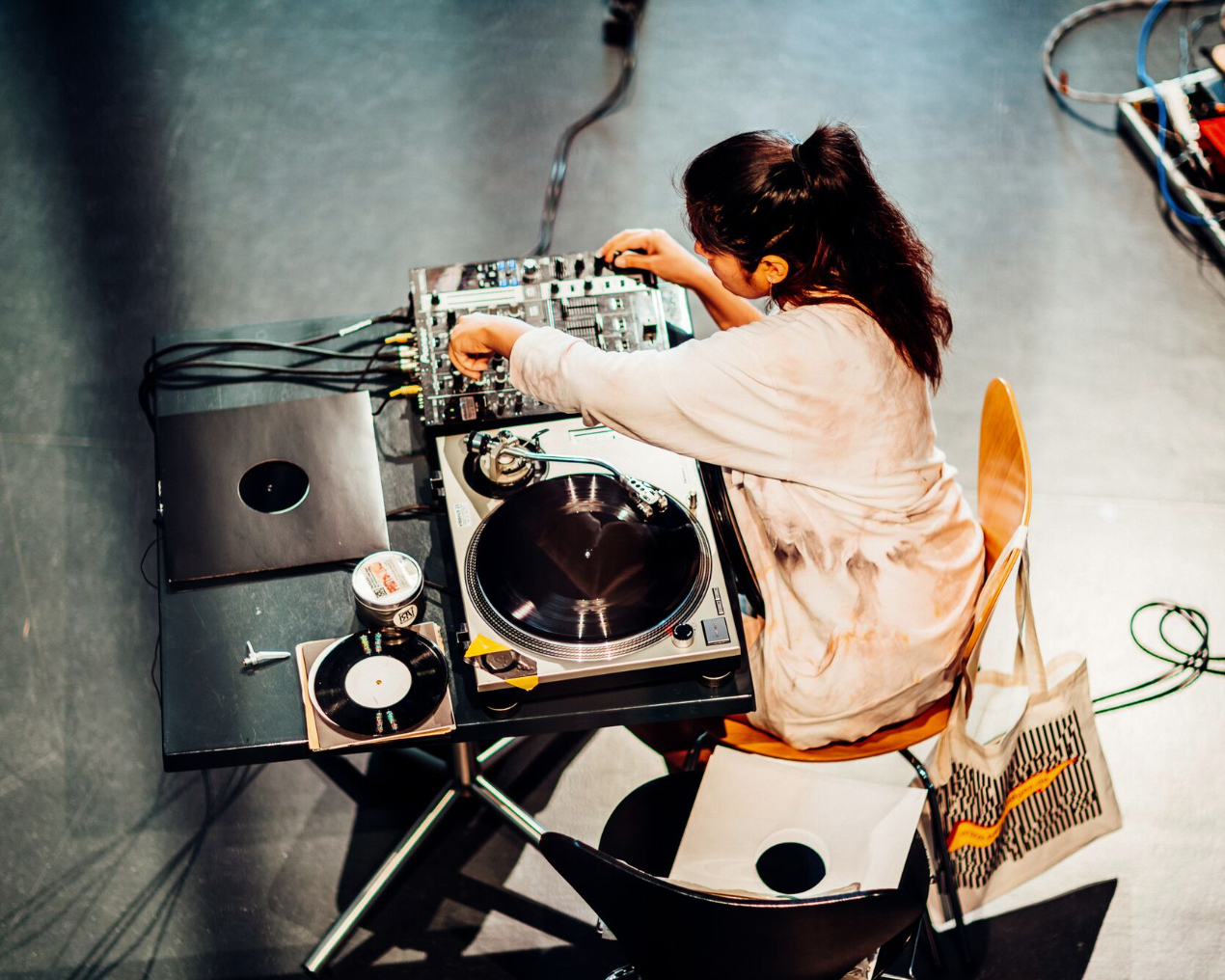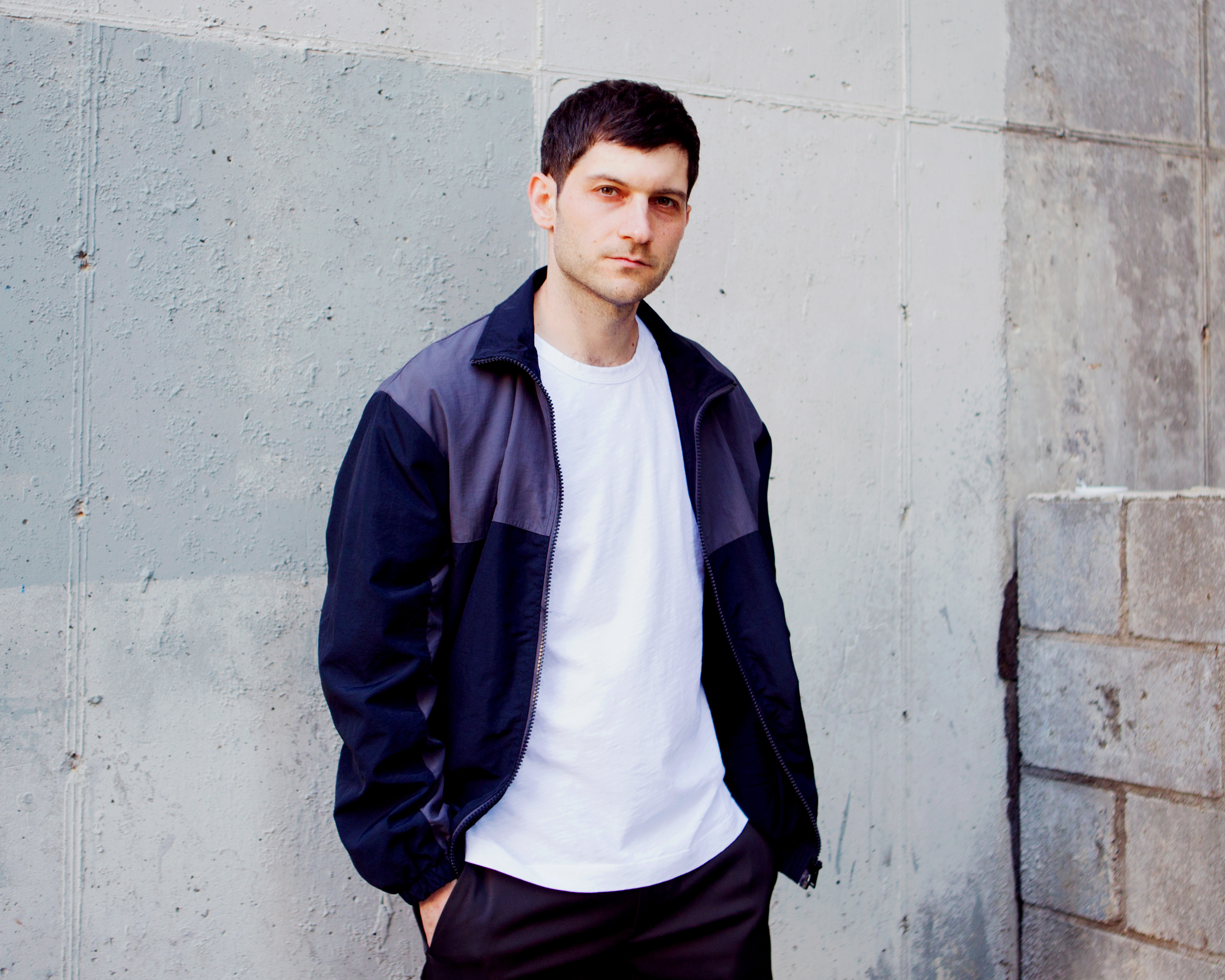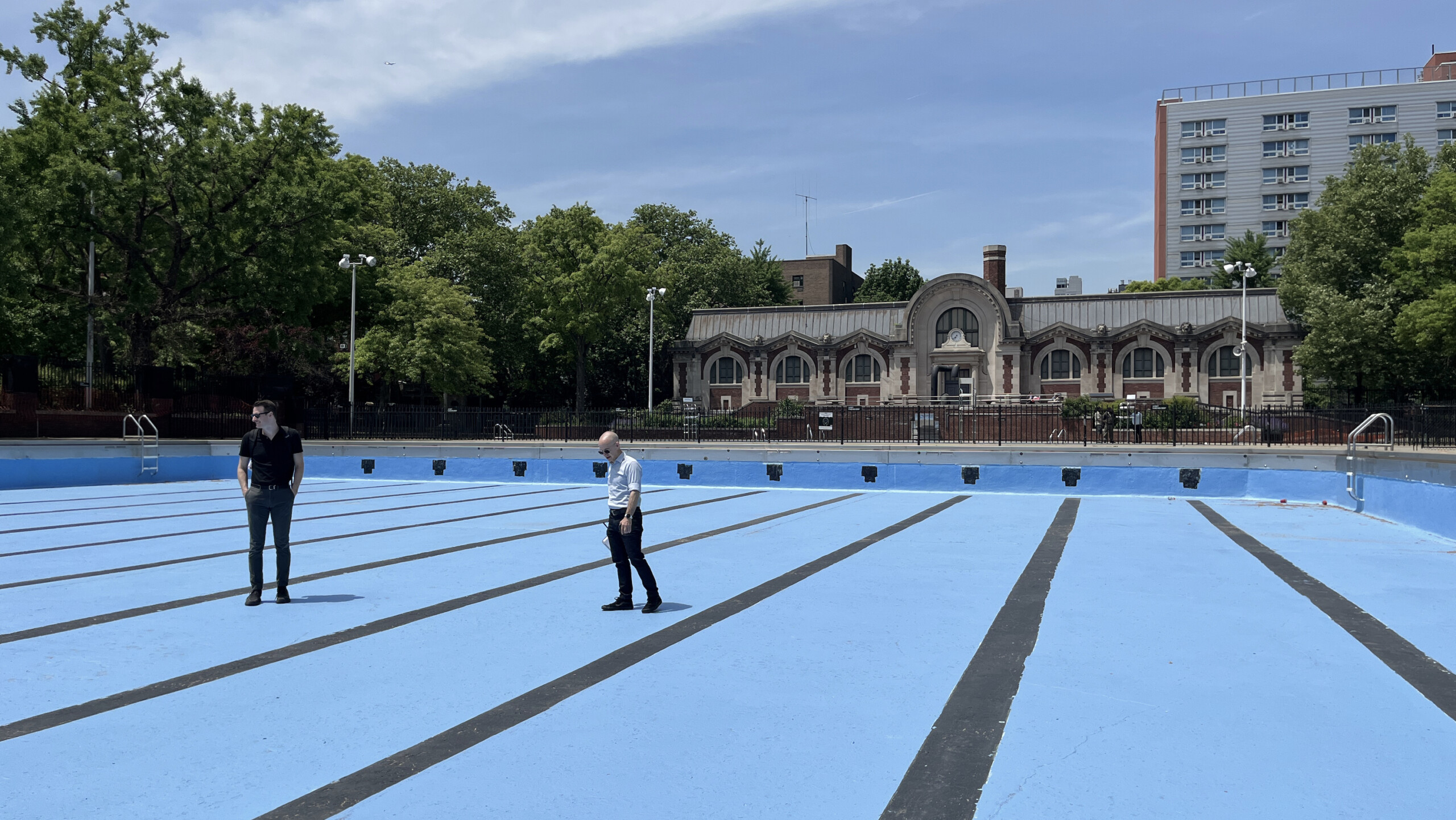This fall, Public Art Fund is thrilled to launch No Swimsuit Required, an ongoing project featuring films, performances, and sound installations in New York City public pools during their off-season. The first iteration, Water Works, will take place across two evenings in September and will explore water as a thematic framework. These events will be hosted at Hamilton Fish Pool–an Olympic-sized pool and architectural landmark on the Lower East Side–after it has been drained following the summer season.
Conceived as an Expanded Cinema presentation utilizing multiple projectors and screens, Water Works will feature experimental 16mm and digital films that explore bodies of water, from vast oceans and serene rivers to turbulent seas stirred by ships and ordinary drips from a leaky faucet. The audience will step inside the drained pool, explore the empty space, and lounge on sunbeds while encountering a diversity of moving image works, including ravishing seascapes and landscapes, hand-processed films, Structuralist cinema, and works with an ecocritical perspective. These films will create an experiential atmosphere and showcase the myriad perspectives contained within moving image artists’ visions of water.
Film and video artworks will be accompanied by live performances by sound artists Eli Keszler (September 21) and Maria Chávez (September 27), who will employ the films’ audio for their interventions. Water Works will feature films by Stan Brakhage, Dietmar Brehm, James Cagle, Mary Helena Clark, Ivan Ladislav Galeta, David Gatten, Helena Gouveia Monteiro, Vincent Grenier, Friedl vom Gröller, Ann Deborah Levy, Abinadi Meza, Youjin Moon, Mary Beth Reed, Dan Perz, Chick Strand, Gao Wei, and Joyce Wieland.
No Swimsuit Required is curated by Gabriela López Dena, Associate Curator of Public Practice.
Water Works is a collaboration between Public Art Fund and The Film-Makers’ Cooperative; it is co-curated by Tom Day, Executive Director, NACG/The Film-Makers’ Cooperative and Gabriela López Dena, Associate Curator of Public Practice, Public Art Fund.
Registration is suggested but not required. Capacity is limited, and admission is first come, first served, so please arrive early. Your registration does not guarantee admission.
Accessibility: This program will take place inside an empty 3-foot-deep swimming pool. Attendees can access it via stainless steel pool ladders or an ADA-compliant ramp. Films screened include strobe-like visual effects, which may affect people suffering from epilepsy and other conditions triggered by light stimulation. Please contact [email protected] with questions and requests for accessibility.
Banner Image:
Man of Aral, 2023
16mm film, color, sound, 6:36 min
Helena Gouveia Monteiro
Films
About No Swimsuit Required
Pools and other social spaces to cool off in the height of summer have a long history in New York City and are an essential part of its public infrastructure. By 1890, the city had already built 15 floating baths along the Hudson and East Rivers. These structures provided safe bathing and swimming at the peak of industrialization. By the early 20th century, indoor bathhouses replaced floating baths, offering sanitation facilities for those living in overcrowded tenements. As the city transformed, bathhouses were no longer needed for hygiene purposes, but water continued to provide relief when the weather was hot and unbearable. Eventually, bathhouses, along with newly built outdoor pools from the Works Progress Administration era, became spaces to gather and play during the hottest time of the year. Currently, over 50 outdoor public pools within the five boroughs are utilized for swimming and other leisurely activities between June and early September. They typically remain inactive for the rest of the year.
No Swimsuit Required brings liveliness to New York City’s empty pools and celebrates these spaces as vital environments for social interaction.
About the artists and collaborators
The Film-Makers Cooperative, New Cinema Group is the first non-profit art organization devoted to the collection and dissemination of experimental film and media art. Founded in New York City in 1961 by a group of twenty-two pathbreaking experimental filmmakers and artists, the FMC supports, distributes, preserves and exhibits artists and artworks from a collection spanning the history of film and media art. Numbering nearly 6,000 works (by 2,500 artists), FMC’s collection is one of the largest repositories of film and media art in the world. FMC offers a diverse exhibition and workshop program curated by an array of in-house and outside experts, curators, writers, artists, and scholars. FMC partners on programming with institutions including MoMA, Light Industry, Maysles Documentary Center, Film at Lincoln Center, Eye Film Museum, and the Museum of the Moving Image. FMC actively supports new work from contemporary makers through grant and production assistance and has a long history of publishing newsletters, periodicals, and books that advocate, historicize, and examine the field of moving-image art.

Maria Chávez is an abstract turntablist, sound artist, and DJ from Lima, Peru, and now based in New York City. Her work explores coincidence, chance, and failure across various mediums, including improvised performance, visual art, and multi-channel installations. Unique in her field, Maria is the only artist using the RAKE Double Needle—a rare tool with two needles that read different segments of a single record simultaneously. This, combined with her skill in transforming broken records into compelling sonic experiences, makes each performance distinct. Her innovative work has been featured and supported by Rewire Festival, Counterflows Festival, Donau Festival, MoMA PS1, The Getty, and DOCUMENTA 14.

Eli Keszler is a Grammy-nominated artist, composer, and percussionist based in New York, known for his critically acclaimed solo records released through various labels like LuckyMe and PAN. He has composed over ten original film scores, including Pet Shop Days (2023), Harka (2022), and The Scary of Sixty-First (2021). Keszler has also contributed to Daniel Lopatin’s score for Uncut Gems (2019). He has received commissions from institutions like the Icelandic Symphony Orchestra, Whitney Museum, and MoMA, and has collaborated with artists such as Oneohtrix Point Never and Skrillex. His work has been featured internationally in venues like the Whitney Museum, Lincoln Center, and MoMA PS1.
 Menu
Menu
